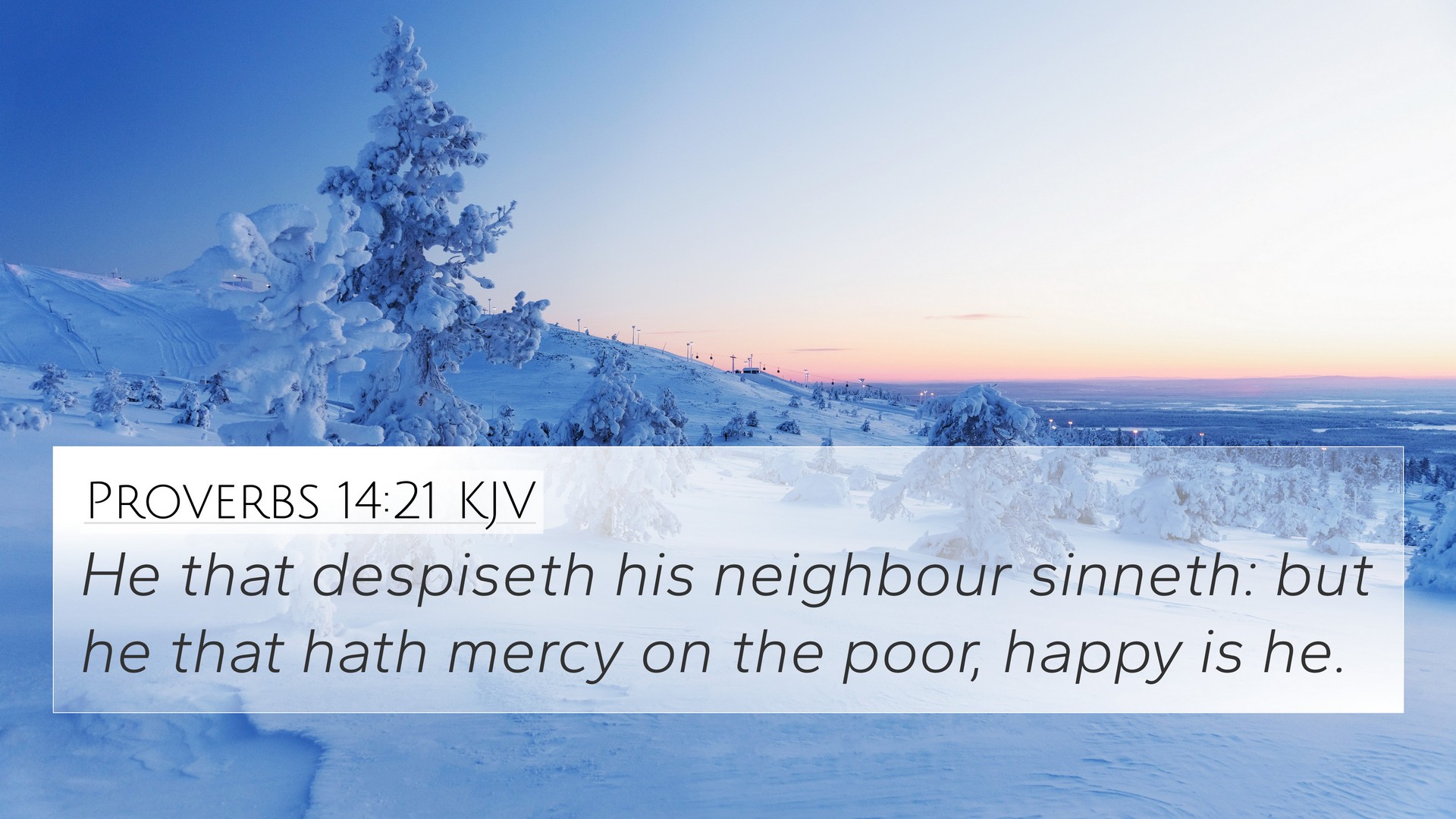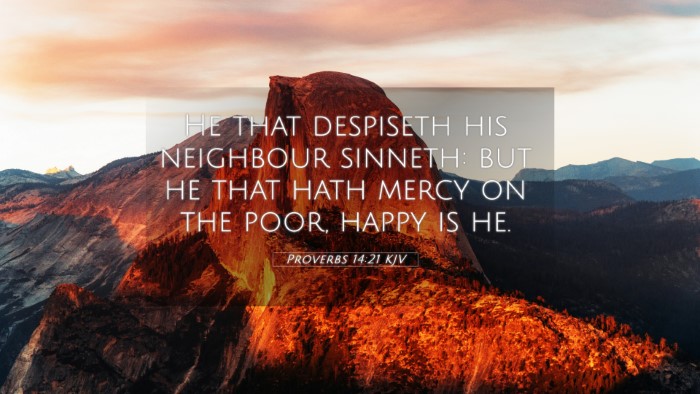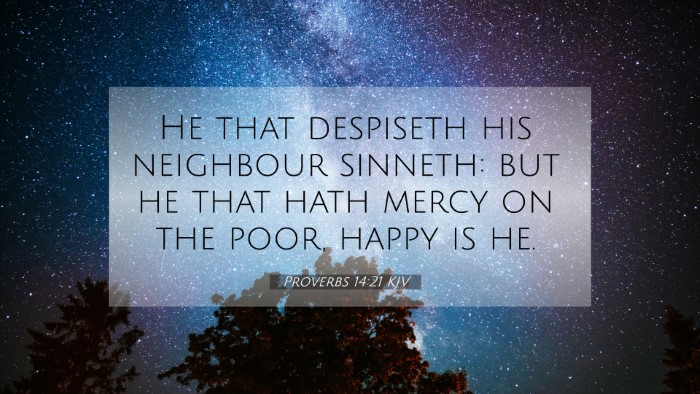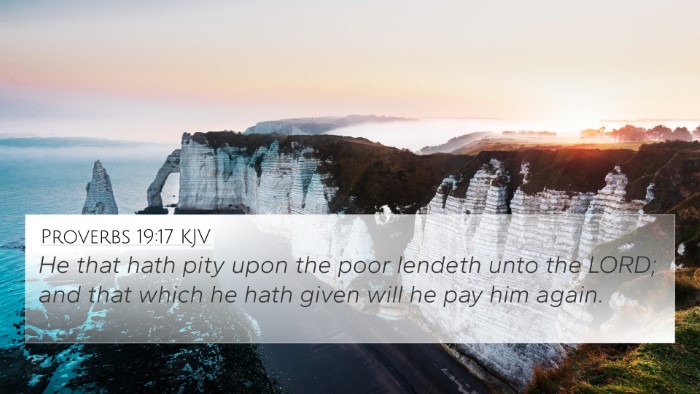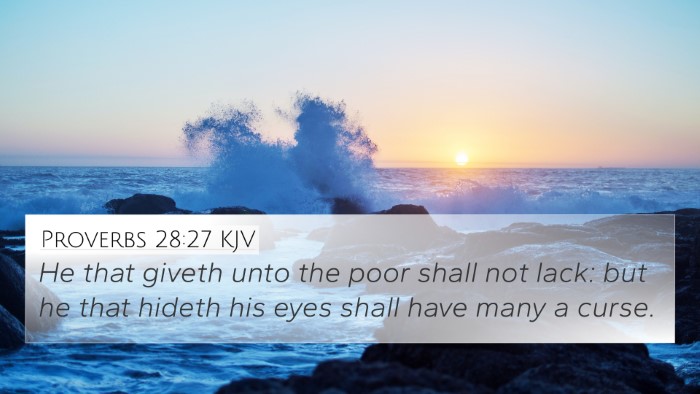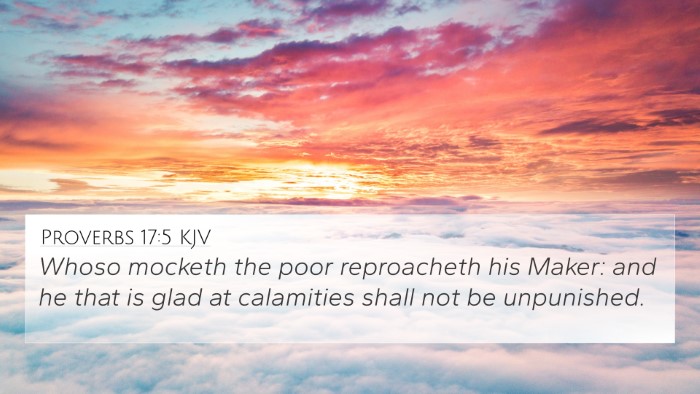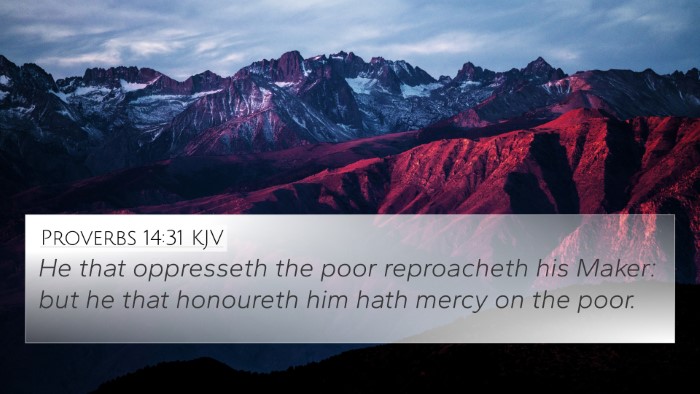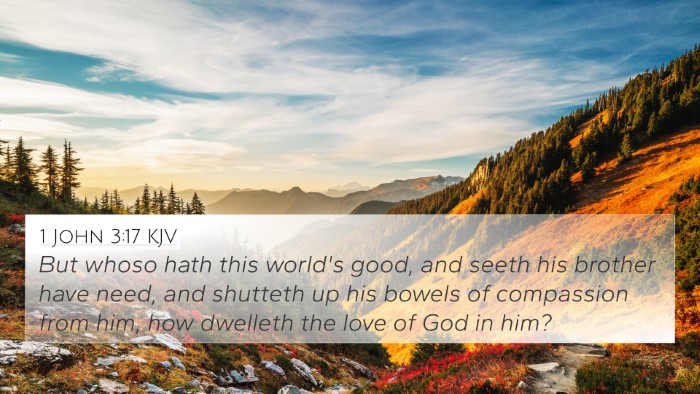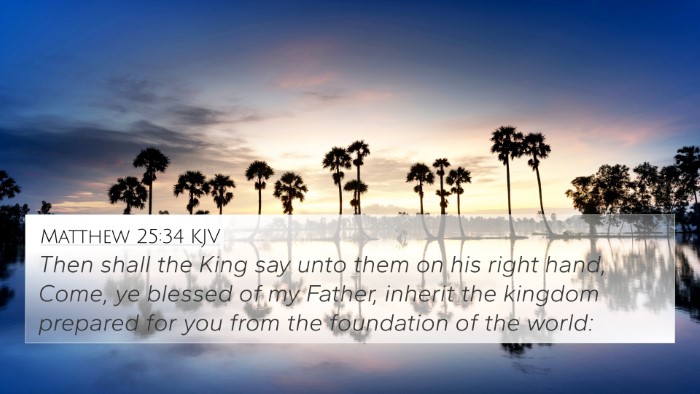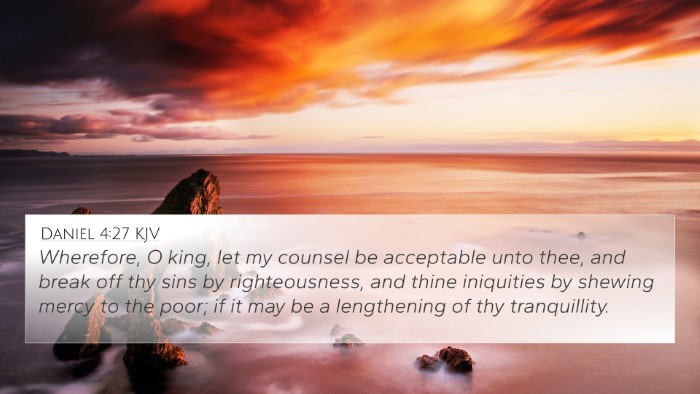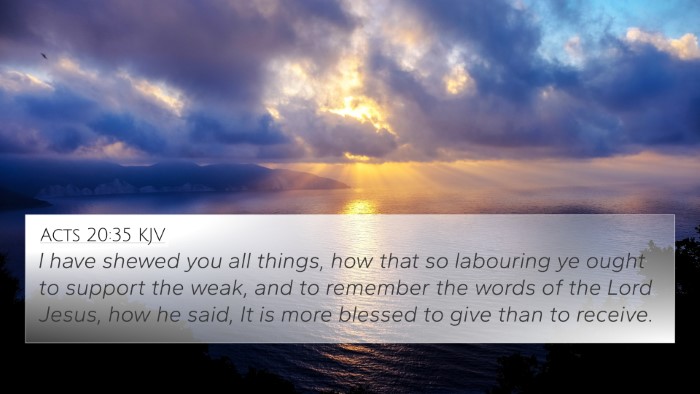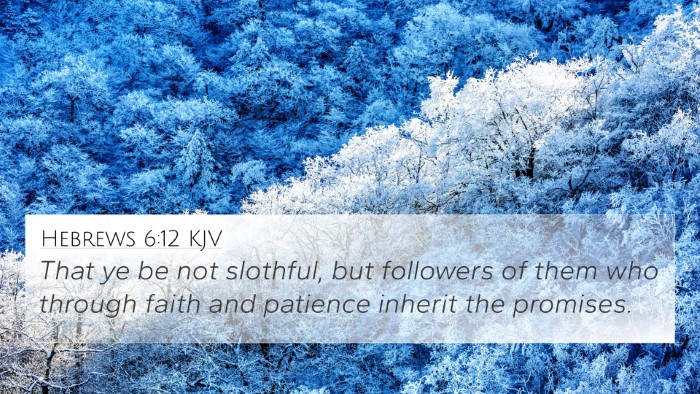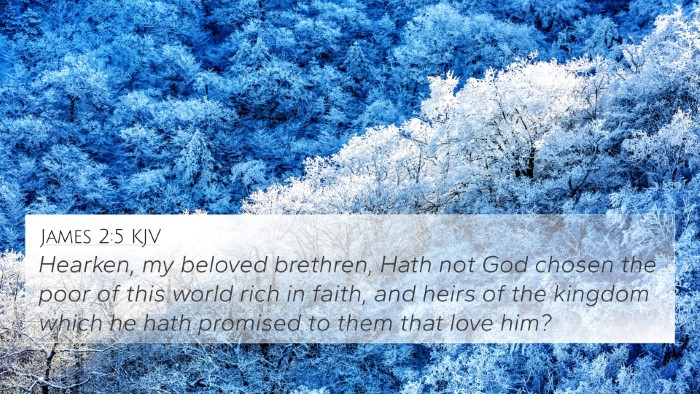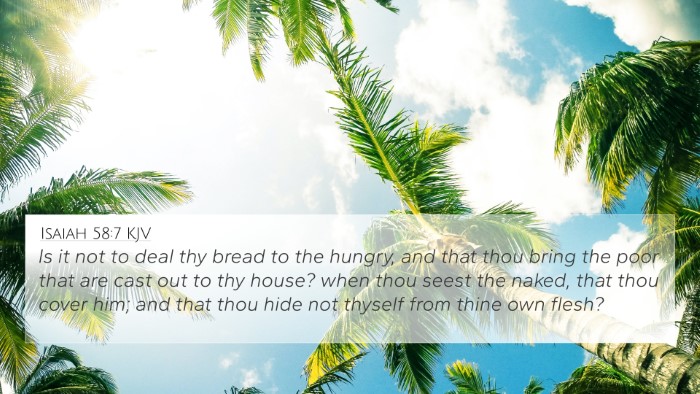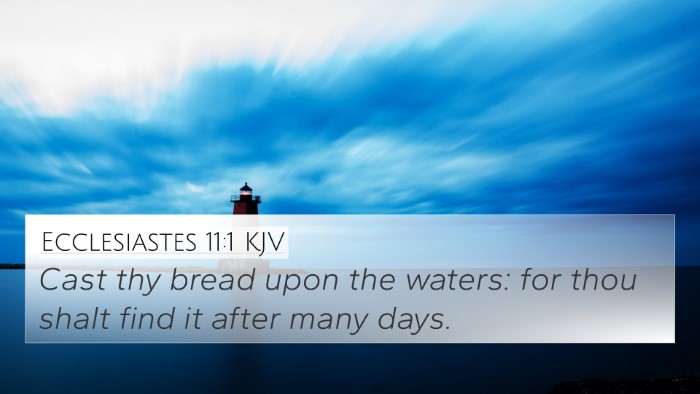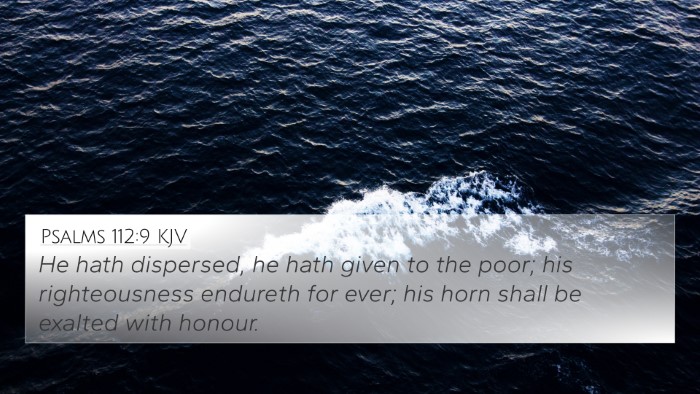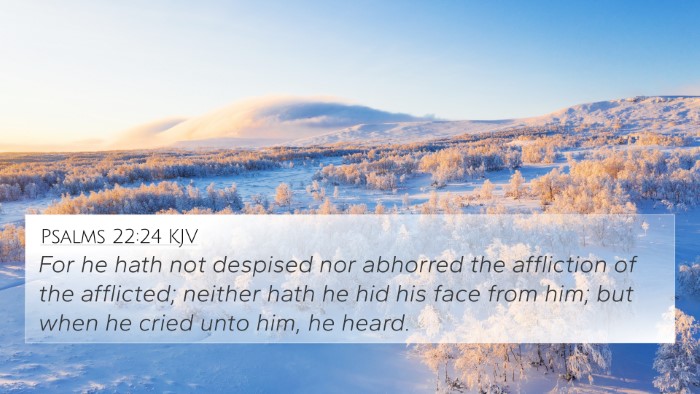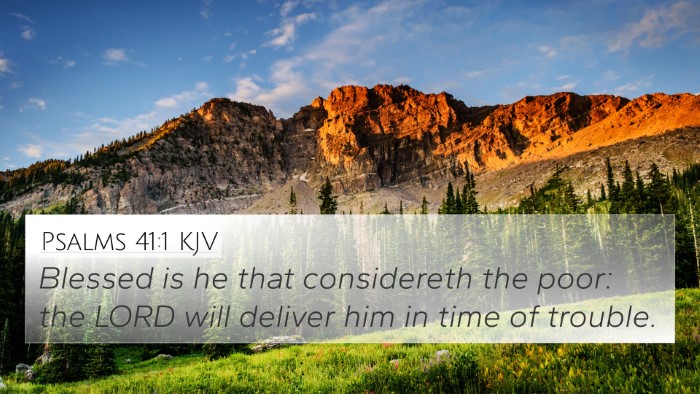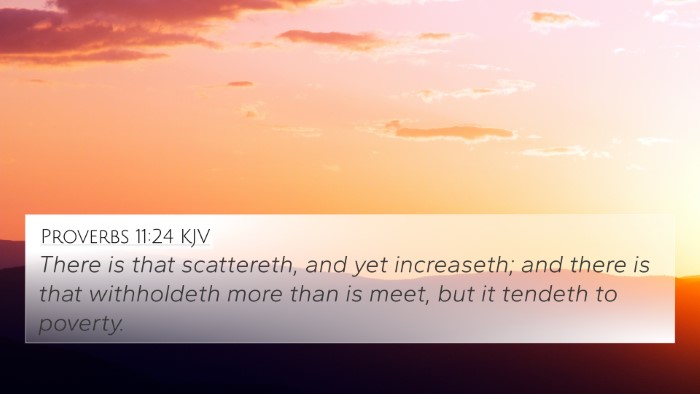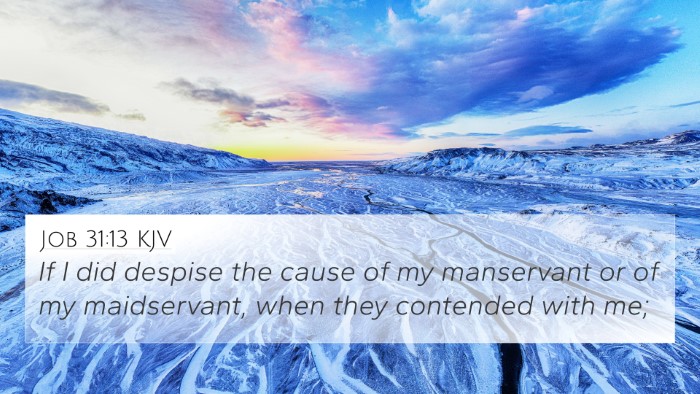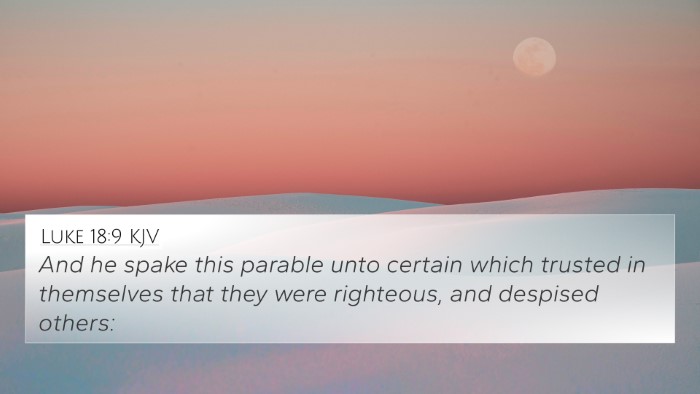Understanding Proverbs 14:21
Bible Verse: Proverbs 14:21 - “He that despises his neighbor sinneth: but he that hath mercy on the poor, happy is he.”
Summary of Meaning
The verse highlights the contrast between the attitudes towards neighbors and the consequences of those attitudes. The first part warns against harboring contempt for others, suggesting that such disdain is sinful. In contrast, showing mercy, particularly towards the vulnerable, is presented as a source of happiness and fulfillment.
Insights from Commentators
- Matthew Henry: Henry emphasizes the importance of loving one's neighbor and the moral obligation to treat others with kindness, especially the poor. He points out that true happiness is found in acts of mercy rather than in disdain.
- Albert Barnes: Barnes explains that the term 'neighbor' reflects a broader scope than just those living nearby; it includes all humanity. His commentary underlines the notion that those who neglect or demean others reveal a heart not aligned with God’s teachings.
- Adam Clarke: Clarke delves into the concept of mercy as a distinguishing mark of a just and upright person. He suggests that the 'happy' individual is one who recognizes the need and extends compassion, highlighting mercy as a divine quality.
Inter-Biblical Dialogue and Cross-References
This verse connects with various other scriptures that underline the themes of compassion and the sinfulness of contempt. Here are 10 related Bible cross-references:
- Leviticus 19:18: "Thou shalt not avenge, nor bear any grudge against the children of thy people, but thou shalt love thy neighbor as thyself: I am the LORD."
- Matthew 5:7: "Blessed are the merciful: for they shall obtain mercy."
- James 2:13: "For he shall have judgment without mercy, that hath showed no mercy; and mercy rejoiceth against judgment."
- Luke 6:36: "Be ye therefore merciful, as your Father also is merciful."
- Proverbs 11:17: "The merciful man doeth good to his own soul: but he that is cruel troubleth his own flesh."
- Psalm 41:1: "Blessed is he that considereth the poor: the LORD will deliver him in time of trouble."
- Isaiah 58:7: "Is it not to deal thy bread to the hungry, and that thou bring the poor that are cast out to thy house?"
- Proverbs 19:17: "He that hath pity upon the poor lendeth unto the LORD; and that which he hath given will he pay him again."
- Galatians 6:2: "Bear ye one another's burdens, and so fulfil the law of Christ."
- Ephesians 4:32: "And be ye kind one to another, tenderhearted, forgiving one another, even as God for Christ's sake hath forgiven you."
Applying the Insights
In light of Proverbs 14:21, believers could reflect on their attitudes towards others. The verse invites introspection on how one's actions reflect on their spiritual condition. Engaging in acts of mercy towards those who are poor or marginalized is not just a moral obligation but a source of true happiness.
Thematic Connections in Scripture
This proverb aligns closely with the broader biblical narrative that emphasizes love, mercy, and compassion:
- Love your Neighbor: Central to the Law of Moses and reiterated by Christ.
- Compassion for the Poor: A recurring theme in both the Old and New Testaments.
- Judgment and Mercy: A theological balance that highlights divine expectation from humanity.
Tools for Comprehensive Bible Understanding
For anyone studying the connections between Bible verses or seeking a deeper understanding, several tools may enhance your study:
- Bible Concordance: A helpful resource for locating specific terms and themes across Scripture.
- Bible Cross-Reference Guide: Assists in identifying linking scriptures and broader themes.
- Cross-Reference Bible Study: A methodology focusing on discovering relationships between passages.
Conclusion
Proverbs 14:21 serves as a poignant reminder of the importance of compassion in our dealings with others. By embracing mercy, we embody the teachings of Scripture and experience the happiness designated to those who fulfill God's command to love their neighbors. This verse compels us to engage in a more thoughtful reading of Scripture, facilitating connections that enrich our faith and understanding.
